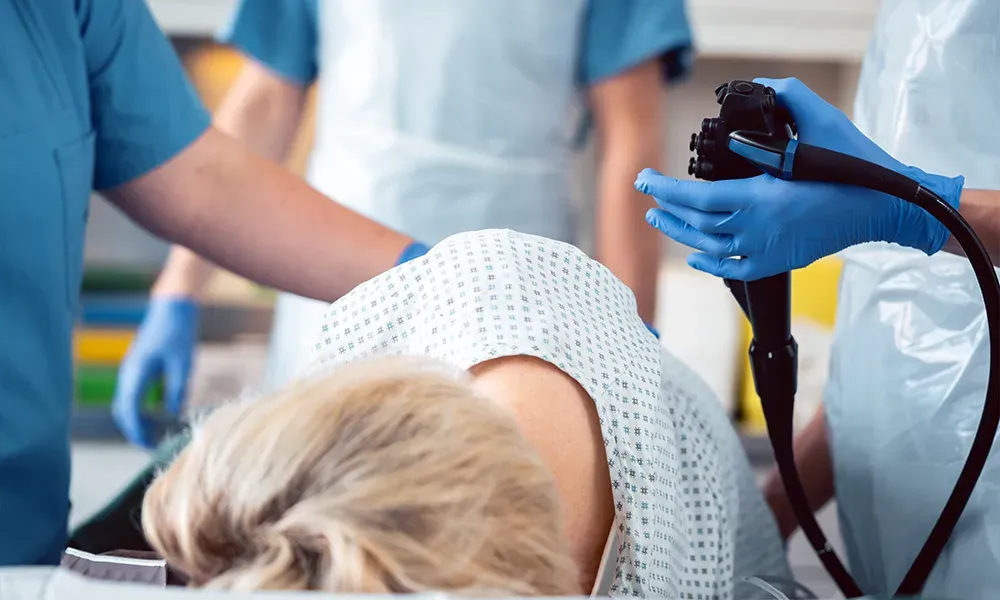When it comes to protecting your digestive health, particularly your colon, few diagnostic tools are as widely recommended or as reliable as a colonoscopy. Often spoken of during routine check-ups or in response to gastrointestinal symptoms, this procedure holds a critical place in preventive healthcare.
But what exactly makes colonoscopy the gold standard for colon health? Let’s explore why this test is so important, how it works, and what sets it apart from other screening methods.
A Direct Look Inside the Colon
One of the biggest advantages of a colonoscopy is that it provides a direct, real-time view of the entire colon and rectum. Unlike other tests that rely on imaging or stool samples, a colonoscopy allows doctors to insert a flexible tube with a camera through the rectum, enabling them to visually inspect the lining of the large intestine.
This hands-on approach gives physicians the best possible chance of spotting abnormalities, from minor inflammation to suspicious growths such as polyps or early signs of colorectal cancer. When abnormalities are found, they can often be biopsied or even removed during the same procedure—something that isn’t possible with other screening tools.
Early Detection of Colorectal Cancer
The most well-known benefit of a colonoscopy is its unparalleled ability to detect colorectal cancer in its early stages. Many types of cancer can develop silently, showing no outward signs until they are advanced. Colorectal cancer is no exception. However, a colonoscopy can identify precancerous polyps before they turn malignant.
Early detection significantly improves treatment outcomes and survival rates. For this reason, medical guidelines often recommend that adults begin colonoscopy screenings at age 45, or earlier for those with risk factors such as family history or inflammatory bowel disease.
High Accuracy and Diagnostic Versatility
Colonoscopy is widely regarded as the most accurate test available for detecting conditions of the lower gastrointestinal tract. While stool-based tests may miss small polyps or give false-positive results, a colonoscopy delivers a clear diagnosis with minimal ambiguity.
Moreover, it’s a versatile diagnostic tool. Whether a patient is experiencing rectal bleeding, unexplained abdominal pain, chronic diarrhea, or a change in bowel habits, a colonoscopy can often identify the cause. It not only detects cancer but can also help diagnose diverticulosis, ulcerative colitis, Crohn’s disease, and other conditions affecting colon health.
Therapeutic Benefits Beyond Screening
In addition to being a diagnostic powerhouse, colonoscopy also offers therapeutic benefits. During the procedure, if the doctor identifies polyps—abnormal tissue growths that could eventually turn into cancer—they can be removed on the spot. Similarly, minor bleeding can be stopped, and small lesions can be cauterized or treated, reducing the need for further invasive procedures.
This combination of diagnosis and treatment makes colonoscopy a one-stop solution for both screening and intervention. It eliminates the delay and additional risk of scheduling multiple procedures and often spares patients from more complex surgeries later on.
Safety, Preparation, and What to Expect
Understandably, some people are hesitant about undergoing a colonoscopy due to concerns about discomfort or the preparation involved. The good news is that the procedure itself is usually painless thanks to sedation, and most patients report minimal discomfort.
Preparation does involve cleansing the colon, typically with a special liquid diet and laxatives the day before. While not the most pleasant experience, this step is essential for ensuring clear visibility during the examination. The entire procedure takes about 30 to 60 minutes, and patients can often go home the same day.
In terms of safety, colonoscopy is considered a low-risk procedure when performed by experienced medical professionals. Complications are rare and usually minor, especially compared to the potential consequences of undetected colon disease.
Conclusion
When weighing the options for colon health screening, colonoscopy clearly stands out as the gold standard. Its unique ability to detect, diagnose, and treat abnormalities in one comprehensive exam is unmatched by other screening methods. From early cancer detection to the removal of dangerous polyps, the benefits are profound and often life-saving.
While it may not be the most glamorous of medical procedures, a colonoscopy offers peace of mind and proactive protection of your digestive health. If you’re approaching the recommended age or have any concerning symptoms, talk to your doctor about scheduling a colonoscopy—it could be one of the most important decisions you make for your long-term wellness.

